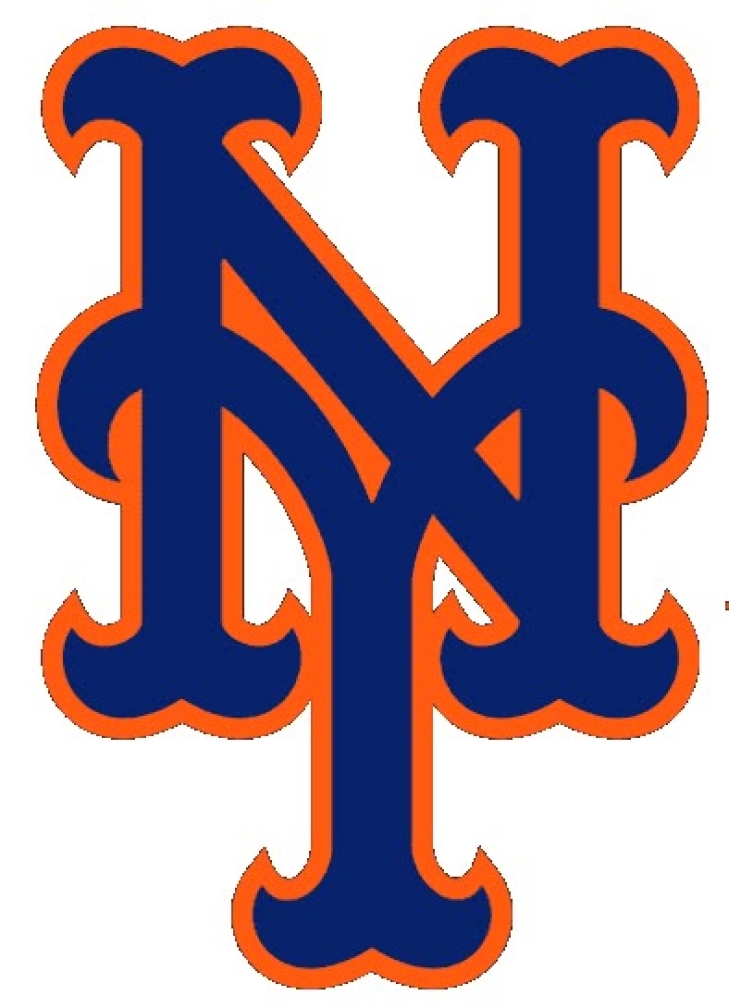
Committee Chairman
How to Start Playing Slots
The slot gaming industry is predicted to grow by $5.05 billion by the end of 2028, at a compound annual growth rate of 14.17%. Since its inception, the slot market has experienced consistent growth, offering more entertaining features and mobile and desktop accessibility.
Thousands of players worldwide spin the reels daily. Game developers consistently produce unique titles with enticing bonuses and innovative designs to meet the growing market demands. Online gaming sites offer different jackpots and themes to attract and keep players engaged.
If you want to spin your first reel, follow this step-by-step guide to join an online casino and start playing.
Here’s the process of getting started with slot machine gaming:
1. Choose an Online Casino
Many casinos offer enticing bonuses on slots. However, it’s good to look beyond promotional offers. Generous bonuses are great, but consider the casino’s licensing body and regulations, security measures, and wagering requirements
Find out the game options available and try them beforehand on free demos to see your chances of winning. Consider contacting customer service to see how quickly they respond. Lastly, consider if the available payment methods suit your needs.
2. Create an Account
Navigate to the Register or Sign Up button at the top of the casino homepage. Click on it and fill out the registration form. The basic information any gaming site would ask for includes your full legal name, home address, phone number, email address, username and password.
3. Make a Deposit and Receive a Welcome Bonus
After creating your account, you must deposit money to start playing real money casino games. Most reputable casino sites offer several payment methods, including PayPal, Skrill, Neteller, American Express, and bank transfer. Once your deposit is processed, claim your welcome bonus by following the operator's instructions.
4. Pick the Right Slot to Play
Once your deposited fund is reflected in your gambling account, visit the slot section of the casino site and view the available slot titles. There are always many fun options to try. If you’re new start with the free demo games to understand how things work before playing for real money.
How to Start Playing Slots - Comprehensive Guide
Here’s the process of playing real money slots:
1. Pick your Preferred Slot Game
Launch your slot game on your mobile device or desktop computer. The game screen will display the symbols and reels. The adjusting bets button and other important game details, such as account balance are located at the bottom of the screen.
2. Check the Paytable
Take a moment to hit the info button and view the paytable and symbol values. They can easily be accessed via a pop-up menu that triggers each time the info button is touched.
3. Adjust Your Wager
You can adjust your wager in different ways depending on the slot. The commonly available option is the one that allows you to adjust your bet’s value. Other options will allow you to increase the number of paylines you’re betting on or the number of coins you bet per spin instead of just their value.
4. Place Your Bet and Spin the Reels
Once you’ve adjusted your payline and bet value according to your preferences, press the Spin Button. You can opt for the AutoSpin option for continuous play. However, it’s good to set a limit to avoid losing money and addictive behaviour.
5. Wait for the Game Outcome
After each spin, the game will automatically calculate your winnings. When you get a winning spin, it’ll be highlighted on the screen.
Best Slot Bonus Explained
Slot games have dedicated bonuses called free spins. These bonuses allow you to spin the reels a couple of times for free without spending money. Online casino sites often give new players free spins for their loyalty, so stick with one casino that you like and keep winning.
You can use your free spins to build your bankroll. Besides free spins, gaming operators offer other bonuses that can help increase your playing time. Ensure to explore and take advantage of them. A no-deposit bonus is one of the offers you shouldn't miss. It allows you to play for free without making an initial deposit.
Pros of Playing Online Casino Games
Online slots have plenty of strengths. Below are a few pros that you should know about before you start playing.
Pros
- They offer free spins which are rare to find in offline casinos
- They offer a download option on mobile devices which allows players to play on the go
- Players can enjoy many bonuses and promotions from different casino sites.
- They offer more varieties of games than brick-and-mortar casinos
Conclusion
Playing slot games is an amazing pastime with the chance to win real money. You must understand the basics, choose reputable casino sites, properly manage your bankroll, and game responsibly. The rule of thumb is to see it as entertainment and never gamble more than you can afford to lose.
The University of Tennessee names their 2025 Hall of Fame Class
Regular visitors of Notinhalloffame.com know that we are slowly working on the top 50 of every major team in the NHL, NBA, NFL, and MLB. Once that is done, we will examine how each team honors its past players, coaches, and executives. As such, it is important to us that the University of Tennessee’s Athletic Hall of Fame has announced eight new member who comprise the Class of 2025.
The inductees are:
Eric Berry, Football, 2007-09. Berry was the first and only two-time Unanimous All-American in Volunteers history, and was the 2009 Jim Thorpe Award winner. A three-time All-SEC Selection, Berry won the 2008 SEC Defensive Player of the Year and the 2008 & 2009 Jack Tatum Award winner. At Tennessee he recorded 14 Interceptions, and went on to have a very successful professional career with the Kansas City Chiefs.
Jenny Connolly, Women’s Swimming & Diving, 2009-12. Connolly compiled 14 SEC Medals and 5 NCAA Medals and is one of the most successful backstroke and butterfly swimmers in Tennessee history.
A.W. Davis, Men’s Basketball, 1962-65. Davis was a two-time All-SEC Selection, and would later serve Tennessee as a Coach and then an Analyst.
Mike Masters, Men’s Swimming & Diving, 1985-88. Masters was a 12-time All-American, two-time SEC Champions and won the Bronze in the 1987 100m Freestyle.
Lauryn McCalley, Women’s Swimming & Diving, 2001-05. McCauley won the 2005 NCAA Woman of the Year and was a five-time All-American diver.
Lindsay Schutzler, Softball, 2004-07. A three-time All-American, Schutzler hold the school record for Hits (362), Triples (20), At-Bats (946) and Games Played (296). She led the Lady Vols to their first Women’s College World Series appearance.
Mike Sposa, Men’s Golf, 1988-91. A two-time All-SEC Selection, Sposa was the third Volunteer to win the individual SEC Title.
Tony White, Men’s Basketball, 1983-87. White is the only player in Volunteer history to lead the team in scoring and holds the single-game record for points (51) in school history.
The event will take place on April 11-12 this year.
We here at Notinhalloffame.com would like to congratulate the impending members of the University of Tennessee Athletic Hall of Fame.
Our All Time Top 50 New York Mets have been revised to reflect the 2024 Season.
Yes, we know that this is taking a while!
As many of you know, we at Notinhalloffame.com are slowly generating the top 50 of each major North American sports team. That being said, we have existing Top 50 lists and consistently look to update them when necessary and based on necessity. As such, we are delighted to present our post-2024 revision of our top 50 New York Mets
As for all of our top 50 players in baseball, we look at the following:
1. Advanced Statistics.
2. Traditional statistics and how they finished in the National League.
3. Playoff accomplishments.
4. Their overall impact on the team and other intangibles that are not reflected in a stat sheet.
Please note that our algorithm has changed, which yielded minor changes throughout the baseball lists.
Last year, the Mets lived up to their potential, going all the way to the National League Championship series before falling to the Los Angeles Dodgers. The season saw three changes, but no new entrants from last year’s roster, although one player returned based on the new algorithm.
As always, we present our top five, which saw no changes.
1. Tom Seaver
3. Jacob deGrom
4. David Wright
You can find the entire list here.
Surprisingly, First Baseman Pete Alonso held at #17.
Leftfielder Brandon Nimmo advanced to #19 from #24.
Second Baseman Jeff McNeil held at #22.
Shortstop Francisco Lindor rocketed from #48 to #24, an impressive jump for the MVP runner-up.
Under the new algorithm, Outfielder Juan Lagares returns to the list. He is ranked #49.
We thank you for your continued support of our lists on Notinhalloffame.com.
How Retired Sports Figures Build Personal Brands and Reach the Hall of Fame
Many athletes shine during their prime. Their on-field feats draw crowds and media attention. Yet, not everyone enters the hall of fame on the first ballot. Some must wait. In that waiting period, personal branding often becomes a hidden factor. By building a strong image after retirement, they remain visible and influential. This can lead to reconsideration and, in some cases, eventual induction into senior or historical categories.
A survey from 2020 showed that 34% of fans name “off-field legacy” as an important part of judging an athlete’s overall greatness. That statistic hints at why personal branding matters, even years after the final game. It shapes how the public, media, and even hall-of-fame voters view the individual’s total career.
Why Personal Branding Matters After Retirement
Retirement sometimes causes athletes to fade from public view. The daily highlights vanish. People focus on younger stars. But some ex-players remain active in the spotlight. They run charities. They mentor youth. They appear on TV as analysts or ambassadors. This sustained presence keeps them relevant. It also builds goodwill among fans and voters who decide hall-of-fame honors.
Example: Coaching and Broadcasting Roles
Several hall-of-fame members first made their mark as players. Later, they coached or commentated. That second career gave them new audiences to impress. One well-known baseball figure said, “I gained more respect for my playing style once people heard me explain the game on broadcasts.” This exposure can tilt opinions. It reminds watchers of their depth of knowledge and past achievements.
Earning the Trust of the Public and Media
Media can influence how the public views older athletes. Positive coverage boosts reputations. Negative stories can stain them. Once the playing days end, controlling the narrative becomes crucial. Some retired players hire firms to manage interviews or social posts. They may also join a negative review removal service if controversy arises. They want a consistent, respectable image that resonates with fans and hall-of-fame voters.
Social Media Connections
Social channels let retired pros speak directly to fans. They share training tips, personal thoughts, or memories of legendary games. This opens a window into their personality. Fans might see them in a friendlier light. That good will can help push borderline candidates over the line for hall-of-fame consideration. Hall-of-fame committees notice broad public support.
Building a Community Presence
Local involvement can cement a legacy. An ex-football linebacker might host free clinics for kids in his hometown. A retired soccer forward might sponsor a local youth league. Reporters pick up these stories, painting a positive picture of community service. One hall-of-fame board member commented, “We look at a candidate’s total impact on the game, on and off the field.” That phrase “on and off the field” sums up how personal branding can shape the final vote.
Charitable Foundations
Some retired athletes start or support foundations. These groups might fund scholarships or disease research. This philanthropy ties back to the athlete’s name. People remember them not just for stats, but also for generosity. One official stated, “A big philanthropic profile reminds us that they have a lasting impact. That resonates when we weigh their contributions to the sport.” Good deeds often linger in voters’ minds.
Owners, Contributors, and Coaches
Not just players benefit from personal branding. Owners, general managers, and coaches can face the same hall-of-fame hurdles. If they left under a cloud or never got recognized, building a strong persona later can reopen doors. They might pen books about leadership. They might appear at conferences. They might mentor younger executives or coaches. Over time, that presence can shift how committees view their overall career.
Example: A Front-Office Legend
Some sports executives remain behind the scenes during their active years. After retirement, they share stories or strategies through interviews or public speaking. This transparency helps fans appreciate their role in winning championships or rebuilding franchises. The momentum can push them toward hall-of-fame induction in the “contributor” category.
Statistics on Senior Inductions
A 2019 study of major sports halls of fame revealed that 15% of new inductees enter through senior or special committees. These committees often focus on overlooked or older candidates. They weigh intangible factors like leadership, influence on the sport’s culture, or post-career achievements. That means personal branding efforts can have real payoff. Public appreciation and favorable media can sway these later votes.
Late-Career Recognition
Voters sometimes revisit borderline candidates decades after retirement. A once-controversial figure might appear more admirable with the passage of time. Positive branding and community contributions can erase old doubts. One example is a coach who missed out early due to off-field issues. Later, a strong reputation as a mentor turned the tide in a senior committee vote.
Actionable Tips for Building a Post-Retirement Brand
- Stay Visible
Appear at charity events, signings, or sports shows. Remind fans and media you exist. - Share Expertise
Contribute to coaching clinics or write columns. Show your deep knowledge of the game. - Engage Online
Use social media to connect. Post stories or advice. Let your personality shine through. - Collaborate
Partner with businesses or nonprofit organizations. Lend your name to causes that matter. - Address Past Controversies
If needed, use professional help to manage your reputation. Aim for a consistent, positive image.
Long-Term Impact of a Strong Brand
A robust personal brand can create benefits beyond hall-of-fame recognition. It can lead to sponsor deals or TV opportunities. It can also enhance your legacy in the eyes of the public. Fans might celebrate your achievements more fully if they see you as a respected figure who stands for the sport’s ideals. One marketing consultant said, “A strong brand doesn’t happen by accident. It’s an ongoing effort to stay relevant.”
Influence on Younger Players
Retired icons with solid brands can mentor current athletes. They share wisdom on balancing performance and image. They might advise them on navigating controversies. This teaching role further cements the older athlete’s standing as a legend. Younger players look up to them, strengthening their post-career legacy.
Conclusion
Personal branding doesn’t end with the final whistle or last pitch. Many retired athletes and sports figures continue building their image. This keeps them front of mind for fans, media, and hall-of-fame voters. Whether through charity, commentary, social media, or coaching, they stay active in shaping how people view their contributions. Eventually, that can tip the scales for an induction vote in a senior or historical category.
If you’re an ex-player, coach, owner, or contributor who feels overshadowed by time, consider these post-retirement branding methods. Improve your public image, connect with the community, and manage old controversies. Over time, those efforts can help rewrite your story. You might find yourself inducted, celebrated, or re-discovered, long after you hung up your uniform. The hall of fame might stand just within reach, waiting for your renewed impact on the sport.





